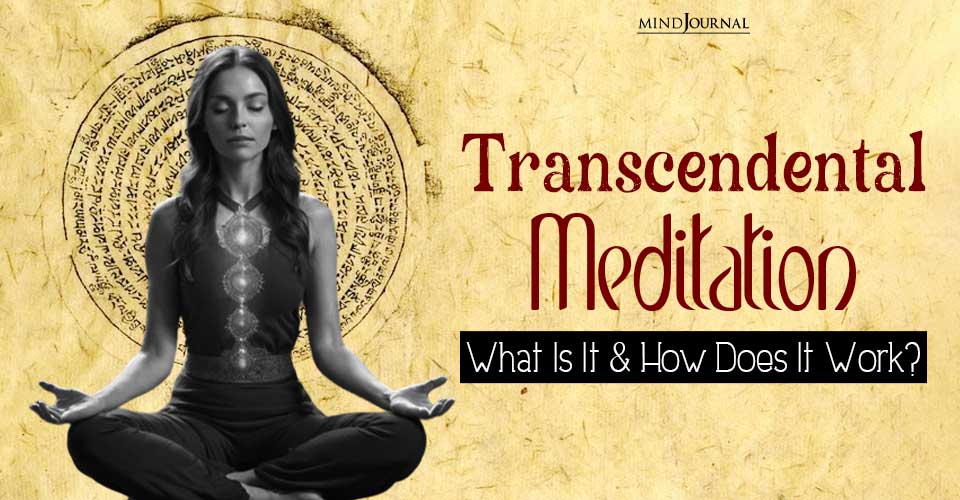When it comes to recovery success from substance abuse, there is one thing most people do not acknowledge enough, and that is mindfulness.
Sobriety is a choice. When someone makes the choice to change his or her life by getting sober it is a deliberate act of the will. The decision to leave substance use behind is often motivated by things that involve pain, loss, and suffering. These are powerful motivators. But in the end, the decision to establish a sober lifestyle—to choose sobriety—belongs only to the person who gave up the substance.
Just as embracing recovery is a choice, remaining abstinent is also a matter of choice. Each hour of every day, the recovering addict must purposefully choose abstinence. Daily temptations or triggers are bound to threaten sobriety. In order to combat those urges, it is essential to have some effective coping skills at the ready. One of the most powerful of these is the practice of mindfulness.
When mindfulness meditation is combined with evidence-based recovery efforts, such as ongoing psychotherapy, MAT, and a 12-step recovery group, a powerful tool is added to the arsenal. The practice of mindfulness enhances continuing care protocols by providing a new way of directing thoughts that can help prevent relapse.
Substance Use Disorder and the Behavioral Response to Emotional Pain
Avoidance of uncomfortable or unsettling emotions or situations is a common characteristic among individuals who struggle with substance abuse. For these individuals, relying on alcohol or drugs becomes a self-medicating technique to avoid feeling, stress, anger, sadness, or fear. This maladaptive response to mitigating uncomfortable emotions lies at the very heart of most substance use disorders.
Once this response of using substances to help manage stressful or upsetting situations becomes a habit, the brain pathways will become altered. This establishes a connection between the emotional trigger (the stressor) and the disordered response to use the substance.
A key goal in addiction recovery is to disrupt this harmful brain connection or thought/behavior pattern by changing the way you interpret and respond to the stressor, and mindfulness can help accomplish this.
How Mindfulness and Recovery Go Together
Mindfulness offers a solution for individuals who were prone to escaping uncomfortable feelings or situations through substance use. Instead of attempting to block the unwelcome emotions practicing mindfulness accomplishes the opposite.
When using mindfulness in recovery, the individual turns their attention to the present experience and acknowledges their feelings and thoughts without judgment. This technique actually helps deflate the power of the triggering thought or craving and allows the person to deliberately process it.
Using mindfulness to diffuse triggers can also act as a stress-reduction tool. Mindfulness can be practiced on the fly anywhere. These short meditation sessions do not require a special room or a large time commitment. Harnessing the power of mindfulness throughout the day as needed becomes an important action in managing negative emotions and other triggers.
Related: 3 Powerful Pointers That Will Help In Preventing Substance Abuse
How Mindfulness Can Help Prevent Relapse
Using mindfulness techniques in a variety of ways can help transfer the sudden urge to use a substance to allow the moment to play out without taking action. These techniques include:
- Mindful breathing. Shallow breathing, or even holding our breath, is a common response to anxiety. One of the fastest ways to reduce anxiety is through mindful breathing. Focusing on the breathing process, the rhythmic inhaling and exhaling, we can gain control over the stress trigger.
- Mindful awareness. By focusing squarely on the present moment, when emotions or a stressful event might be triggering the urge to use or drink, the individual can validate their feelings without critiquing them. Do not attach judgment to the present emotions, determining whether the response is justified, just accept it and know it will soon pass.
- Mindful listening. It is human nature to reject criticism or insults, often without considering the other person’s point of view. Practicing mindful listening helps us to open up to what another is saying without overreacting or allowing discourse to escalate, which allows us to be more compassionate and understanding.
What is Mindfulness-Based Relapse Prevention?
One interesting approach to using mindfulness and recovery skills is a program called mindfulness-based relapse prevention (MBRP), which was developed by Dr. Alan Marlatt.
This aftercare model is based on the integration of mindfulness and cognitive-behavioral therapy (CBT) with added tools that address the common issues in early recovery, substance craving, and negative emotional states.
MBRP helps the individual overcome cravings and emotionally upsetting situations with a concept called “urge surfing.” Using this tool, the individual who experiences cravings or situations that might threaten sobriety they envision it as a temporary event that will dissipate, like riding a wave.
A study published in JAMA concluded that individuals who practiced MBPR versus treatment as usual, or typical aftercare strategies, showed significantly lower rates of substance use and heavy drinking after twelve months. This further confirms the connection between mindfulness and recovery success.
Related: 10 Pointers For Fighting The Stigma Of Substance Abuse
Other Holistic Practices that Aid Recovery
Stress reduction is an important focus for individuals in recovery. In early recovery, it is common to experience high levels of anxiety while facing stress and uncertainty while restoring stability. Practicing mindfulness and other relaxation techniques become essential coping tools to access when anxiety ramps up.
In addition to mindfulness, some examples of other holistic practices include:
- Yoga. Yoga is an ancient Buddhist practice that involves slow, deliberate poses and movements while also integrating breath work and positive messaging.
- Deep breathing. Deep breathing exercises can swiftly reduce anxiety, blood pressure, and heart rate. This easy practice can be done anywhere at any time.
- Meditation. Meditation involves using words and guided imagery to induce positive feelings and relaxation.
- Acupuncture. Acupuncture uses small needles in strategic meridians on the body to open energy pathways.
- Therapeutic massage. Massage helps reduce stress and enhance relaxation by manipulating muscle tissue, which releases toxins from the body.
- Aromatherapy. Using essential oils, such as rose oil, lavender oil, and bergamot, will promote relaxation. Oils that relieve depression include ylang-ylang and Roman chamomile.
- Equine therapy. Working with a horse by grooming, exercising, and feeding them can be psychologically therapeutic.
- Art therapy. Art-based therapy provides an experiential activity that can help express deep emotions while also promoting relaxation and building self-esteem.
- Gardening therapy. Tending to a garden can improve mood, reduce stress, and build self-esteem.
Cultivate a Healthy Lifestyle
Mindfulness is a great coping skill in recovery, but add these five activities to the daily routine for added recovery benefits:
1. Get off the couch.
Getting regular exercise is an essential lifestyle change in achieving optimum wellness in recovery. Physical activity is a mood booster and also helps to reduce stress and improve cognitive functioning.
Add a morning jog, an afternoon power walk, or workout at the gym to the daily routine. Consider other aerobic activities like cycling, swimming, and dancing to keep your fitness routine fresh and engaging. At work, why not take a short walk during the lunch break to keep your blood pumping.
Related: 9 Ways How Simple Morning Exercise Can Boost Your Productivity
2. Nutritious breakfast.
It is said that breakfast is the most important meal of the day. A healthy breakfast provides fuel for the upcoming demands of the day. Beginning the day with sound nutrition helps boost productivity, cognitive focus, decision-making, and stamina.
Even those who don’t like to eat in the morning should grab a small snack, such as a banana, some nuts, a yogurt, or a protein bar. For those who enjoy a good breakfast, stick to whole-grain cereals or bread, fresh fruits, and eggs.
3. Improve sleep quality.
Lack of sleep can be a relapse trigger. Getting a minimum of 7 hours of quality sleep can improve mood, cognitive functioning, concentration, and energy level. This allows the individual to face the stressors of the day on solid footing, thus reducing the risk of relapse.
Getting sound sleep can be accomplished by establishing a regular sleep schedule, shutting off electronic devices and phones an hour before bedtime, reducing caffeine use after 3 p.m., and avoiding heavy meals after 7 p.m.
Related: 20 Tips For A Better Sleep That Don’t Require A Prescription
4. Nurture your relationships.
Family relationships, friendships, and marriages should be nourished in recovery. Humans have an inherent need for connection. Substance abuse can harm those relationships and connections, so part of the recovery effort should include special attention to reconnecting and restoring the bond.
In recovery, the core support network—friends and family—will need to be honored. Cultivate these relationships to enjoy emotional stability as well as an excellent source of recovery support.
5. Practice gratitude.
It is very nourishing to the spirit to acknowledge the daily blessings experienced in recovery. Calling to mind all that is right in one’s world will offset the negatives and help keep the individual in a positive frame of mind.
Even the smallest little things that were a source of joy or elicited a smile are a source of gratitude. Express your thanks to others generously and regularly, and keep a gratitude journal to get in the habit of acknowledging your blessings.
Mindfulness is a highly effective tool for managing distracting thoughts and emotions in early recovery. Mindfulness can help train the mind to redirect negative or stressful thoughts and feelings and learn to accept them without judgment. Practicing mindfulness can help reduce the risk of relapse and give the individual a greater sense of control in their new sober life.










Leave a Reply